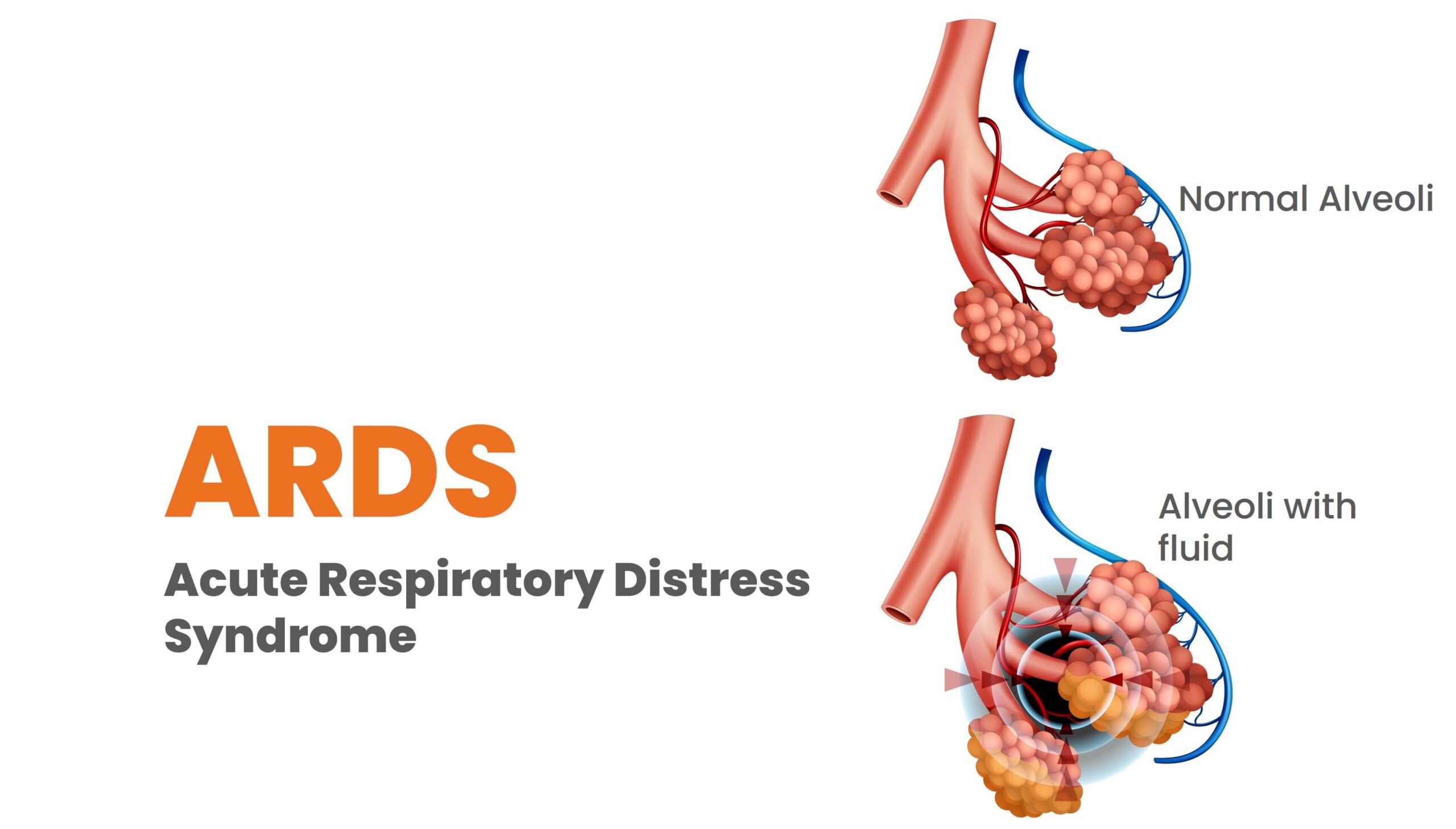
What is ARDS?
Acute Respiratory Distress Syndrome (ARDS) - also known as "baby lung" because of lesser air space available. It means both lungs are badly damaged, and they have become hard and small-spaced. This damage causes fluid to build up in the tiny air sacs (alveoli) preventing oxygen from reaching the bloodstream effectively.
When does ARDS occur?
ARDS can be triggered by various disease processes like, Pneumonia, other infections (blood, urine or intestinal infection) or any major insults to body like trauma, pancreas inflammation or swelling.
What happens to the lungs in ARDS?
Smallest unit of lung (alveoli) is damaged and it is either flooded with protein- reach fluids or there is clogged circulation to alveoli, making it difficult for oxygen to pass into blood stream. This leads to small or stiff functional unit of lung (sometimes known as “baby lung”).
So, there will be difficulty in breathing (heavy breathing) and low oxygen levels and high CO2 levels in blood.
Symptoms of ARDS
Symptoms of ARDS can develop rapidly and include:
Shortness of breath
Rapid breathing
Low blood oxygen levels
How is ARDS treated in the ICU by our team?
Managing ARDS requires intensive care. Treatment focuses on:
Addressing the underlying cause: Treating the infection or addressing the underlying medical condition.
Supplemental Oxygen therapy and High Flow Nasal Cannula (HFNC), Non-Invasive Ventilation (NIV) support (for mild to moderate cases).
Ventilator support: (for severe cases) to rest and assist breathing.
Lung protective strategies: Minimizing lung injury by using specific ventilator settings.
Restrictive fluid strategies: Limiting fluid intake or removing extra-fluid helps lung to have better gas exchange and less work of breathing.
Prone position Ventilation: Placing the patient face down to improve oxygenation.
ECMO (Extracorporeal Membrane Oxygenation): A complex procedure that oxygenates the blood outside the body in severe cases.
What can you do? Early recognition matters.
If you or your dear one experience severe shortness of breath, oxygen level in SPO2 is less than 94% or difficulty breathing, seek medical attention and consultation by ICU specialist immediately. Early diagnosis and treatment are crucial for saving life.
Looking for an ARDS specialist in Ahmedabad?
I am specialized in critical care medicine and have extensive experience in managing ARDS. Our team is equipped to provide advanced care and support to patients with this condition.
Banner Source: www.freepik.com
Disclaimer: This information is intended for general knowledge and informational purposes only, and does not constitute medical advice. Always consult with a qualified healthcare professional for diagnosis and treatment.
Disclaimer: This information is intended for general knowledge and informational purposes only, and does not constitute medical advice. Always consult with a qualified healthcare professional for diagnosis and treatment.


